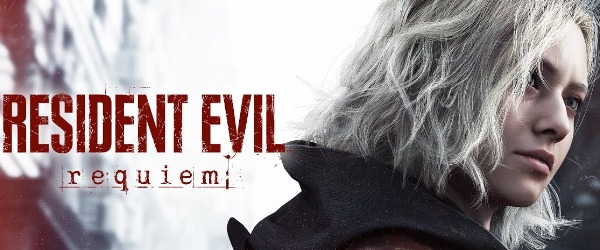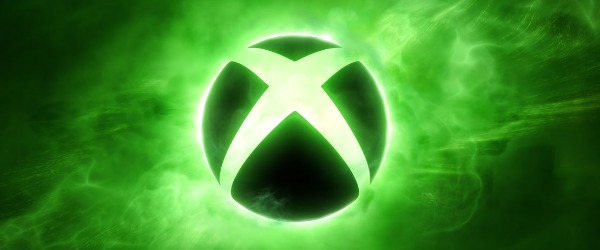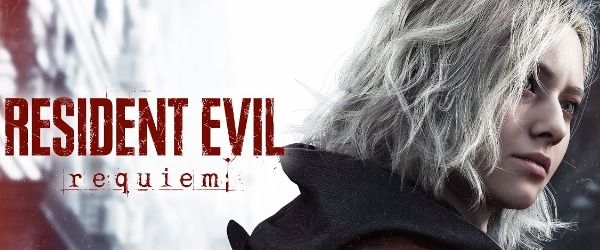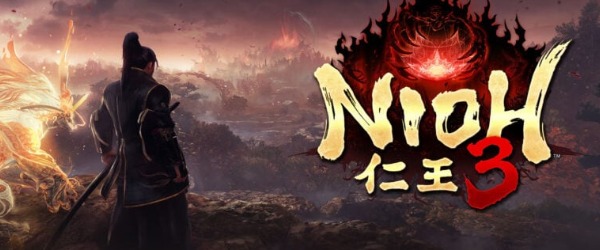
History of Video Games: Towards a New Generation (2011-2012) - Article
by Taneli Palola , posted on 11 August 2016 / 10,920 ViewsWelcome to the final part of our look at the history of video games. During this article series we have covered over 70 years of history, chronicling the rise of the video game industry, from its humble beginnings in the 1940s, the years of experimentation and growth in the 70s, its death and revival in the 80s, entering the mainstream in the late 90s, and finally becoming the juggernaut it is today in the 2000s.
2011 saw the three main home consoles go through something of a reversal of fortunes compared to previous years. For the first time since the beginning of the 7th console generation the PS3 rose to the top on a yearly basis, while the Wii was suddenly in 3rd place. To add to Nintendo's woes, the Nintendo DS was experiencing an even more drastic freefall in sales, although it still managed to outsell the PSP, which was also in rapid decline.

However, Nintendo already had its next handheld platform lined up, with the Nintendo 3DS making its debut in 2011. It was the first new platform to be released by one of the big three since 2006 and the first new handheld since 2004. This near five year gap between new console releases was almost unprecedented, and demonstrated the longevity of the 7th console generation perfectly.
Unlike the DS, the 3DS wasn't an immediate success. Its early sales were fairly disappointing and this prompted Nintendo to drop the system's price just six months after launch. After this early price reduction the handheld quickly gained momentum and sales began to increase greatly. As a result, in its first year on the market the 3DS managed to sell over 13 million units. For comparison, during its first full year on the market the DS sold a little over 10 million units.
The year also just about saw another notable hardware release, when Sony's new handheld the PlayStation Vita was released in Japan on December 17th. The western release would come early the following year. The system's Japanese launch was a notable success, selling nearly 500,000 units in just two weeks of availability.

In terms of software the 3DS had a fairly slow start, but as the year grew older the console began receiving some exceptional games, in large part thanks to Nintendo's own efforts at making the console successful after a rocky start. These games included the likes of Pilotwings Resort, Nintendogs+cats, Star Fox 64 3D, The Legend of Zelda: Ocarina of Time 3D, and most notably Super Mario 3D Land and Mario Kart 7, both of which ultimately went on to sell over 10 million units on the console.
With its successor now available, Nintendo DS sales fell off a cliff almost immediately. It sold just shy of nine million units in 2011, compared to the over 20 million of 2010. Still, despite rapidly declining sales the handheld received a decent number of notable games this year as well (including Ghost Trick: Phantom Detective, Radiant Historia, Kirby Mass Attack, Okamiden, and Pokemon Black/White), although mostly during the first half. After that the focus of most developers shifted to the 3DS.

The PSP was in a similar situation, although hardware sales didn't fall off quite as drastically as they did with the DS. With sales of around 7.5 million units for the year, Sony's handheld was now closer to the DS on a yearly basis than ever before (barely a million units separated the two). It also got a respectable amount of significant new games, including Tactics Ogre: Let Us Cling Together, Dissidia 012 Final Fantasy, The 3rd Birthday, The Legend of Heroes: Trails in the Sky, and Final Fantasy IV: The Complete Collection. As you can probably tell, the console was largely dominated by Japanese developers by this stage; most western developers had already moved on to the next console generation.

On the home console front, the Wii lost roughly a third of its sales compared to the previous year and was now trailing behind the competition for the first time in its lifetime. Regardless, it still managed to sell a very respectable 11 million units in 2011. The main problem was that its continued success was mostly thanks to already existing 'evergreen' games which continued to sell exceedingly well several years after release. New big games were becoming increasingly rare for the Wii as time wore on, as evidenced by the fact that out of its ten best-selling games in 2011 only two were new releases.
Those two were Just Dance 3, which was the year's best-selling game on the Wii, and The Legend of Zelda: Skyward Sword. Although well received, Skyward Sword turned out to be a somewhat divisive entry in the beloved series. This, combined with the game's relatively late arrival on the aging console resulted in it not selling quite as much as most other home console releases in the series, although selling over four million copies is certainly not an insignificant achievement by any means.

Meanwhile, both the Xbox 360 and PS3 had slight increases over the previous year in terms of sales, and both achieved their peak years in 2011. The Xbox 360 fell a bit short of 14 million units sold, while the PS3 came close to 15 million units. Overall, both consoles had another great year, with numerous excellent games bolstering these record hardware sales.
The Xbox 360 had just a few notable exclusive releases in 2011, but the few that it did get were among the year's biggest releases on the system. The first of these was Gears of War 3, the third in what is one of Xbox's most important franchises. The game became a huge success, selling over 6 million copies on the Xbox 360. The second release was Forza Motorsport 4, which was an almost equally huge success, with sales of well over 4 million copies.
A huge number of multiplatform releases for the year also performed best on Microsoft's console. These included games like Dead Island, Bulletstorm, Dragon Age II, Dead Space 2, Crysis 2, Saints Row: The Third, Portal 2, and three of the biggest releases of the year across all systems - Elder Scroll V: Skyrim, Battlefield 3, and Call of Duty: Modern Warfare 3. In fact, Modern Warfare 3 is currently the single best-selling release in the entire series, with sales of nearly 15 million copies on the Xbox 360 alone.

The PS3 on the other hand wasn't short in exclusive releases, with many of the console's biggest series bringing out new installments this year. The console was also home to some of the year's best-selling multiplatform releases. However, 2011 wasn't all positive for Sony, as this was the year when the PlayStation Network was infamously hacked, compromising the accounts of millions of people, and forcing Sony to take the entire service offline for almost a month.
The outage had numerous effects on the industry and gamers alike. Sony suffered a huge PR blow, as its insufficient protection methods put the personal information of countless people at risk. In addition, after the problem had been resolved, Sony announced that the outage alone had cost the company $171 million. Numerous games also suffered as a result of the security breach, as online play was completely unavailable while the PSN was down. For example, SOCOM 4: US Navy Seals was released just one day before Sony took the network down, effectively crippling the game's launch.

Fortunately the PS3 had a very good year in terms of game releases. Notable multiplatform releases included fighting games like Mortal Kombat, King of Fighters XIII, and Marvel vs. Capcom 3: Fate of Two Worlds, platformers like Rayman Origins and Sonic Generations, and numerous other notable releases such as Assassin's Creed: Revelations, Trine 2 Deus Ex: Human Revolution, Driver: San Francisco, and Shadows of the Damned.
Furthermore, games like Catherine, L.A. Noire, Batman: Arkham City, and Dark Souls were most successful on Sony's console. The PS3 release of Dark Souls is still the most successful release in the critically acclaimed series, having sold over two million copies on the console. 2011 also saw a release that most people had likely long before written off as something that was never going to happen. Duke Nukem Forever was released and, to the surprise of very few, wasn't very good.

The PS3 also received a large number of big exclusive titles, contributing immensely to the console's great sales for the year. Among these were titles such as Resistance 3, MotorStorm: Apocalypse, Yakuza 4, LittleBigPlanet 2, InFamous 2, Killzone 3, and the console's most important release of the year, Uncharted 3: Drake's Deception, which eventually went on to sell nearly seven million units, becoming the best-selling entry in the series thus far.
On PC things went on as usual. Most multiplatform titles were released there as well, and as always, PC gamers got their fair share of games only available on their chosen platform. There was certainly no shortage of games on PC, with new releases like Magicka, Cities in Motion, Total War: Shogun II, World of Tanks, Terraria, Bastion, The Binding of Isaac, The Witcher II: Assassins of Kings, Might & Magic Heroes VI, Payday: The Heist, Cave Story, Star Wars: The Old Republic, and To the Moon coming out every single month.

2012 was something of the end of an era, as this was the year when the PlayStation 2 was finally discontinued in Japan. After over 12 years on the market the PS2 had had one of the longest lifespans of any video game console ever made, and during that time it sold over 155 million units worldwide. To this day the console remains the best-selling video game system ever released and has amassed a library of great games unlike almost any other console in history.
The year also saw the 8th generation of consoles get to a real start with the release of the Wii U. With the 3DS already out and the PS Vita coming out in the west in February, the console market was suddenly split between two generations. Unfortunately, the newer platforms didn't get to a very good start for the most part, although the 3DS managed to fix its early issues during the previous year and in 2012 the handheld sold over 14 million units.
The Western launch of the PlayStation Vita didn't go nearly as well as the Japanese launch. It sold at a decent pace for the first few weeks, but sales fell off very quickly, and by the end of the year the system had just barely managed to sell past 4 million units worldwide. In contrast, the Wii U had a much better launch when it was released at the end of 2012, managing to sell over 2 million units in little over a month. Problems for the console didn't really start until the following year when it sold just a little over 3 million units in 12 months, falling behind even the ailing Vita for the year.

The Wii U was fortunate enough to have a decent line-up of notable games available during its launch period, including New Super Mario Bros. U, Nintendo Land, and ZombiU, as well as some notable multiplatform titles that had been released earlier on other platforms. One of the console's biggest problems, even at this point, was its severe lack of third party support. This has continued to hamper the console to this day. Most of its truly successful releases are games made by Nintendo, while other developers have been unable to really create such games for the console.
Sony's PS Vita had a similar problem, with very few noteworthy games coming to the system in 2012. The small number of significant releases were high profile games such as Uncharted: Golden Abyss, Gravity Rush, LittleBigPlanet PS Vita and Persona 4: Golden, but the fairly small pool of major releases contributed heavily to the platform's poor sales.

On the flipside, the 3DS had quite a good year, getting a plethora of notable games both big and small. Among these were 3rd party titles such as Resident Evil: Revelations, Theatrhytm Final Fantasy, Kingdom Hearts 3D: Dream Drop Distance, Professor Layton and the Miracle Mask, and Harvest Moon 3D: A New Beginning, as well as Nintendo's own releases like New Super Mario Bros. 2, Kid Icarus: Uprising, and Paper Mario: Sticker Star.
The 7th generation consoles were now decreasing in sales across the board. The Wii sold just five million units in 2012, and had not yet quite managed to pass 100 million units sold. The 360 was down by over 20% from the previous year, to 10 million sold, and the PS3 fell to 12 million units sold. With both Sony and Microsoft set to bring out their new consoles the following year the previous generation was now counting its last remaining days on top of the industry.

The Wii was more or less on its last legs now, but the little white box still had a few aces left up its sleeve, the most notable of which were The Last Story and Xenoblade Chronicles. Regardless, it was clear that outside of a few exceptions the console had seen its best games come out quite some time ago.
The Xbox 360 had another pretty good year for software, although as with other consoles of its generation, the number of games coming to the system was clearly in decline at this point. Notable multiplatform releases on the console included Tom Clancy's Ghost Recon: Future Soldier, Darksiders II, Borderlands 2, Dead or Alive 5, Dishonored, The Darkness II, Kingdoms of Amalur: Reckoning, Prototype 2, and two of the year's most hyped releases - Mass Effect 3 and Call of Duty: Black Ops II, which was the year's best-selling release.
In addition the Xbox 360 received a few big profile exclusive game releases, most notable of which were Forza Horizon and Halo 4. The 4th Halo game went on to become a huge commercial success, and helped establish 343 Industries as the new main developer for the franchise after Bungie had left the series behind. The game ultimately sold almost 10 million copies on the Xbox 360, making it the 3rd best-selling release in the series to-date.

The PS3 had a similar year, with numerous noteworthy multiplatform releases and a handful of important exclusive titles. Among the more notable multiplatform titles were Final Fantasy XIII-2, Soulcalibur V, Asura's Wrath, Street Fighter X Tekken, Max Payne 3, Dragon's Dogma, Lollipop Chainsaw, Persona 4 Arena, Sleeping Dogs, Tekken Tag Tournament 2, Assassin's Creed III, Hitman: Absolution, and Far Cry 3.
Exclusive releases on the PS3 included mostly some smaller profile titles such as Twisted Metal and PlayStation All-Stars Battle Royale, neither of which likely sold quite as well as Sony hoped. However, the year also saw the release of one of the games that defined the entire console generation – Journey. The game became a huge critical and commercial success upon release, and is today often seen as one of the best games made during the 7th console generation.

On PC the indie game boom was in full swing. More and more successful indie releases were coming out every single month, among which were titles such as FTL: Faster Than Light, Castle Crashers, Retro City Rampage, Hotline Miami, Dear Esther, Legend of Grimrock, Lone Survivor, and Mark of the Ninja.
Of course, there were also a number of big budget titles released on PC as well, with games like Counter-Strike: Global Offensive, Guild Wars 2, Torchlight II, World of WarCraft: Mists of Pandaria, Planetside 2, XCOM: Enemy Unknown, The Walking Dead, Spec Ops: The Line, and Diablo III giving players more than just a few great games to play.

2012 was a transitional year for the industry. Despite most platforms getting a huge number of big games, overall sales of both hardware and software were down by quite a significant margin. A lot of this was due to the older home consoles and handhelds starting to show their age, while the newer consoles were either not out yet or hadn't quite managed to establish themselves as viable new platforms by this point.
This was also the year when Nintendo began to show some cracks in its armor, as both the Wii U and to a lesser extent the 3DS were proving to be unable to live up to their predecessors. As a result, the company's position as the market leader was for the first time in a long time genuinely in question. With the PS4 and Xbox One on the horizon, the battle for the console market throne was about to begin anew once again.

However, this is where we will end our look at the history of video games, at least for now. We've gone through 72 years' worth of development, during which time video games transformed from solitary experiments to one of the biggest entertainment industries on the planet. What once began as an overall insignificant little experiment in 1940 has now become one of the driving forces of mainstream culture.
I hope you have enjoyed reading these articles as much as I've enjoyed writing and researching them. I'm not even close to done with video game history, however; now that we've taken a more general look at the timeline of the history of video games I will start going into much greater detail about various different topics and events surrounding video games throughout the medium's long history. For now, however, thanks for reading.
More Articles
Thanks a lot for this article series Taneli. I've enjoyed reading all 12 of them through the last 8 months. Very pleased to hear that you'll continue to write :)
The end to a truly unforgettable generation. Great article. As with the others, they're all neat to read
Good read as always.
Great read.






















 Essay Pro
Essay Pro